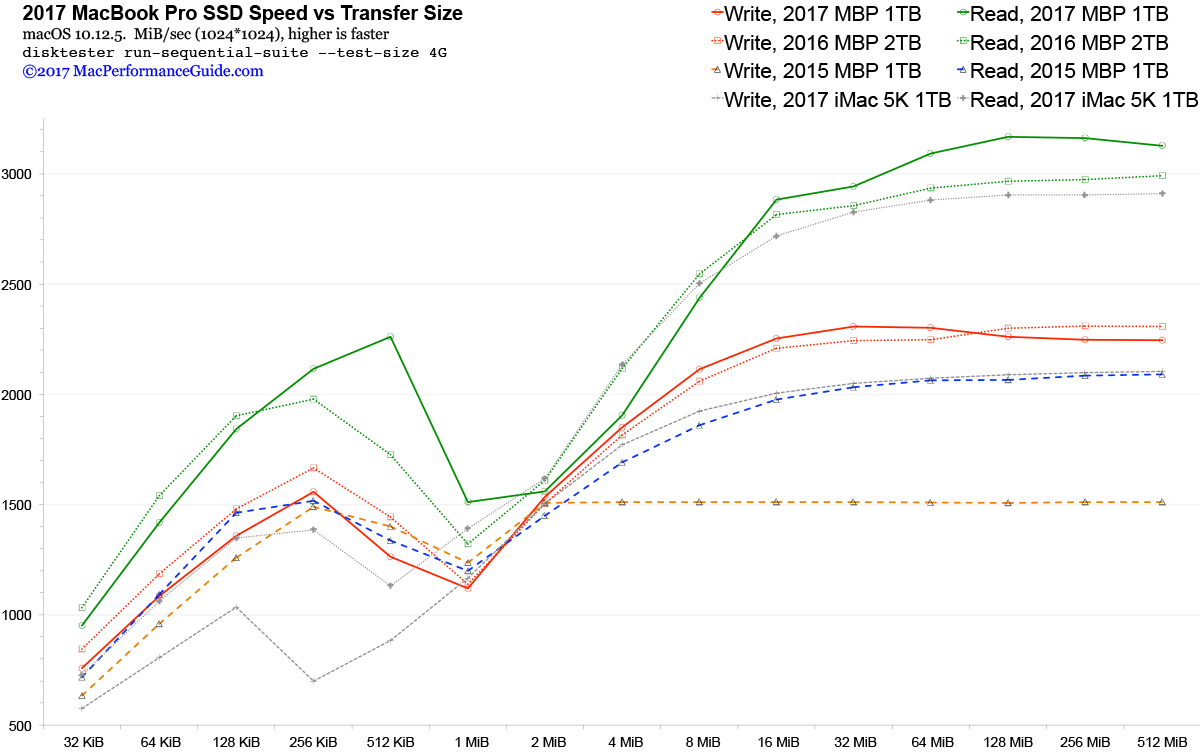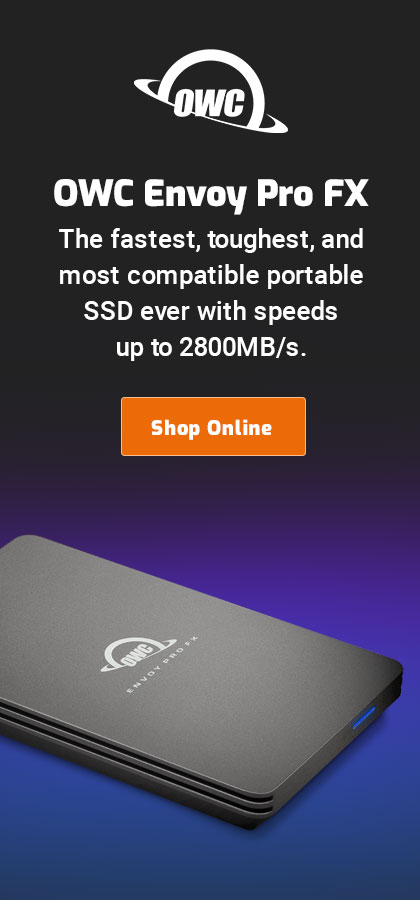
|

|

|

|

|

$220 SAVE $130 = 37.0% Western Digital 16.0TB Western Digital Ultrastar DC HC550 3.5-in… in Storage: Hard Drives
|

|

|

|

|
2017 MacBook Pro: SSD Speed vs Transfer Size
Related: 2016 MacBook Pro, 2017 iMac 5K, 2017 MacBook Pro, 4K and 5K display, computer display, iMac, iMac 5K, laptop, MacBook, MacBook Pro, Macs, Other World Computing, SSD
Mac wish list • all 15" Apple MacBook Pro 2017 models • MPG gets credit if you buy through those links. Suggested accessories include the OWC Thunderbolt 3 Dock and 1TB Envoy Pro EX.
MPG tested a fully-loaded 2017 MacBook Pro with 1TB SSD.
The SSD performance of the 2017 MacBook Pro is the best MPG has ever tested in a Mac as of mid 2017. Jaw dropping performance! This is insanely fast, and even a little better than the 2016 MacBook Pro SSD, which was the previous speed record holder.
That said, the 2016 and 2017 models are very close. The main difference is that the 2017 MacBook Pro offers higher speeds for 256KiB, 512KiB and 1MiB transfer sizes. Otherwise the 2016 model and the 2017 model are the same speed in practical terms.
Numbers for the 2016 MacBook Pro were obtained with macOS 10.12.1; numbers for the 2017 MacBook Pro and 2015 MBP and 2017 iMac 5K were all obtained on macOS 10.12.5.
Transfer speed vs transfer size
Tested with the run-sequential-suite command of diglloydTools DiskTester.
The graph below shows performance for read and write for transfer sizes from 32K to 512MB.
The 2017 MacBook Pro (solid lines) shows the best performance of all: better than previous MacBook Pros, and quite a lot better than the 2017 iMac 5K (gray lines), particularly on reads and writes less than 1MB in size, which are critically important sizes for most applications. Summarizing:
- 2017 MacBook Pro SSD speed is the reigning champion as of mid 2017. MPG deems it the best because It offers significantly better performance with 256K, 512K and 1M transfer sizes.
- 2017 MacBook Pro handily beats even the 2017 iMac 5K by a good margin for 1MB or smaller I/O sizes.
- 2015 MacBook Pro SSD is very good, but has roughly 2/3 the speed of the 2016 and 2017 models.
These are real world figures through the OS X file system APIs, and thus reflect the performance available to applications.
Figures are in MiB/sec (multiple by 1.048 for MB/sec).

Seagate 22TB IronWolf Pro 7200 rpm SATA III 3.5" Internal NAS HDD (CMR)
SAVE $100

 diglloydTools™
diglloydTools™

